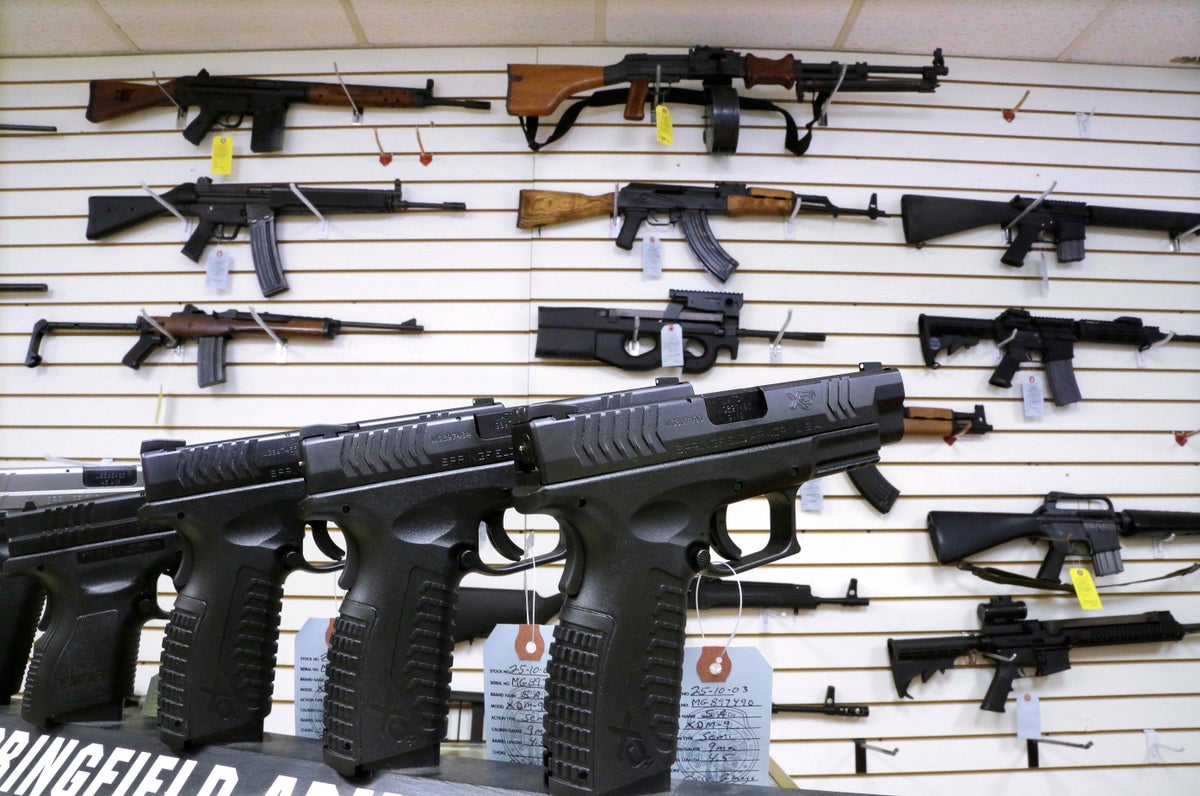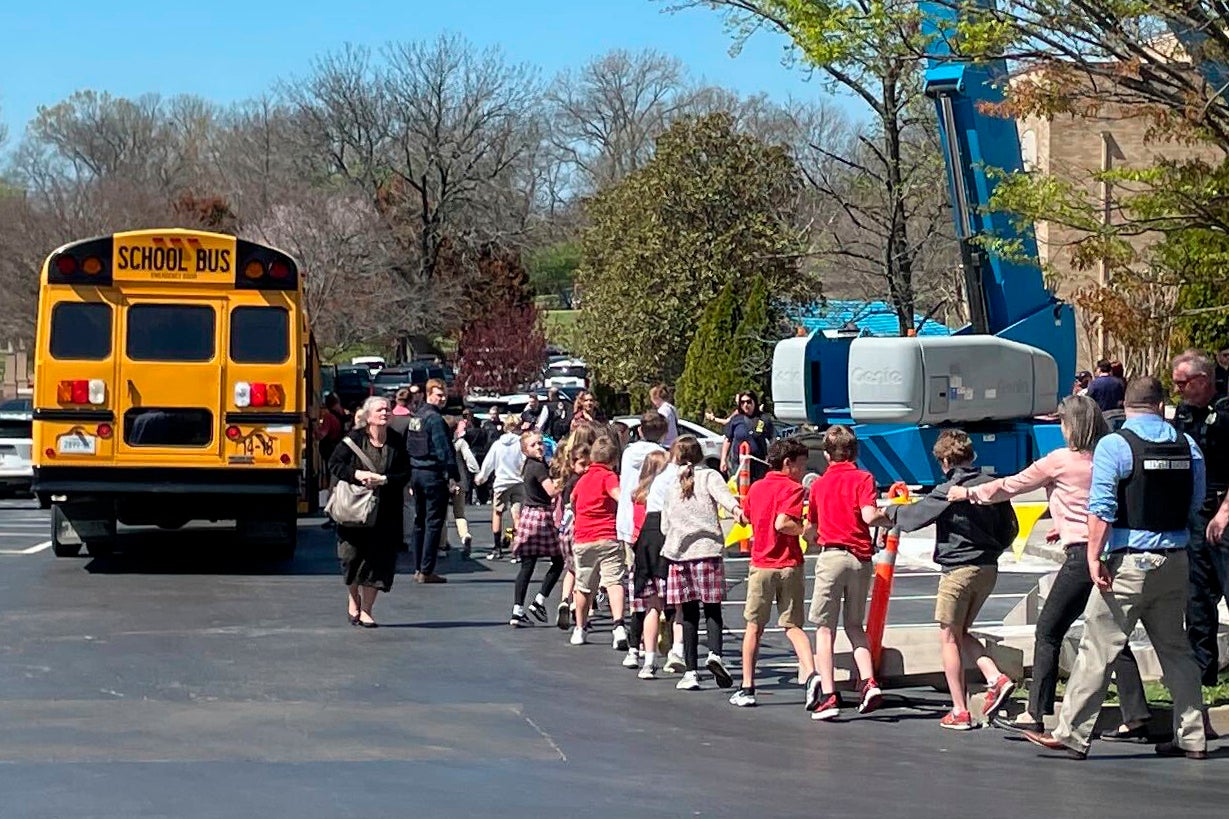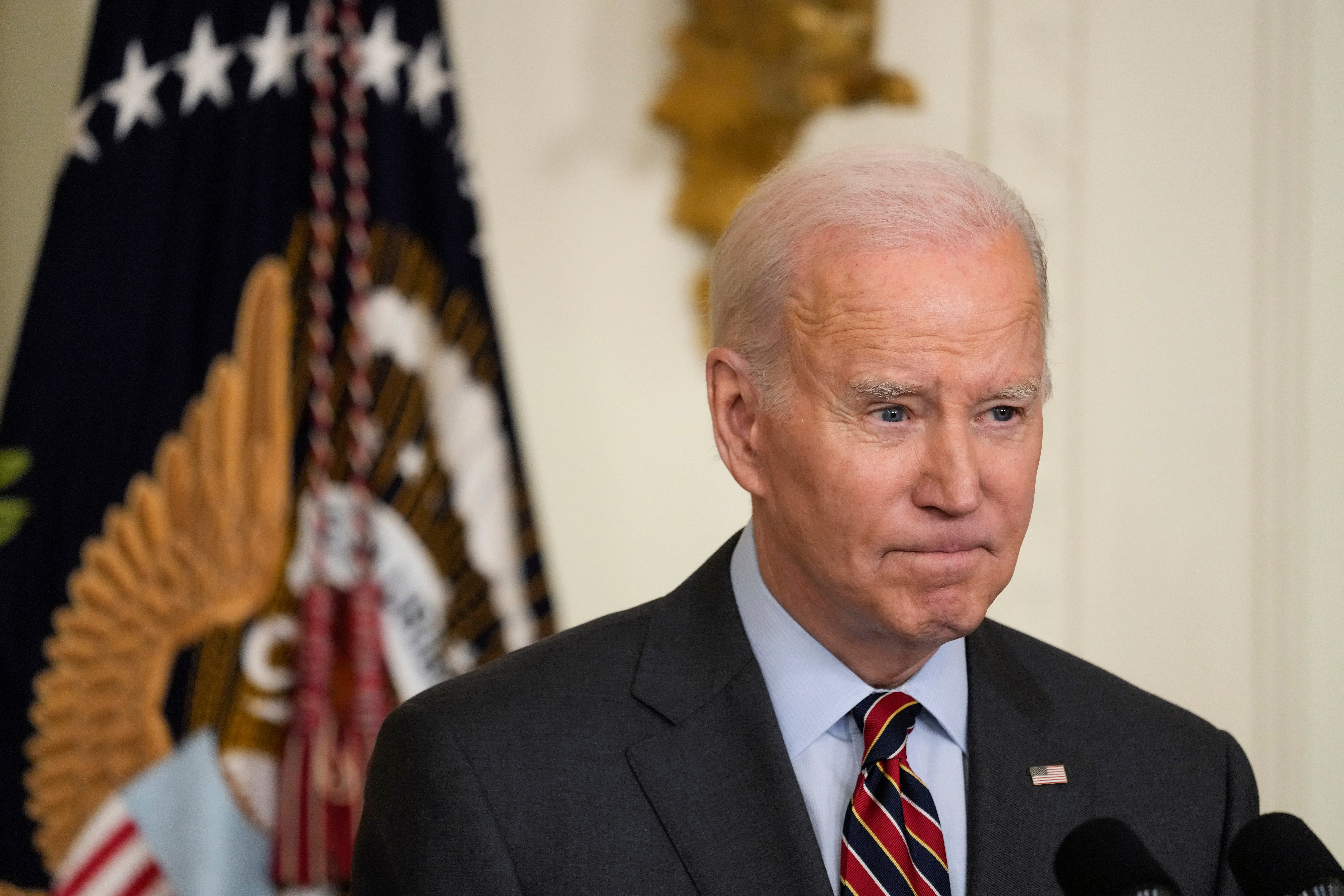
A suspected shooter who opened fire inside an elementary school in Nashville, Tennessee was armed with a handgun and two assault-type rifles, firearms that have been used in some of the nation’s deadliest mass shootings over the last decade while dominating the American gun market.
About one in 20 US adults – roughly 16 million Americans – own at least one AR-15-style rifle, according to polling from Ipsos and The Washington Post, which traced the explosion of the popular firearm from its military use into one of the nation’s most popular and deadliest weapons. One of the firearms carried by the Nashville suspect was an AR-style rifle, according to police.
AR-15-style rifles were used in 10 of the 17 deadliest mass shootings since 2012, including last year’s massacres in Uvalde, Texas and Buffalo, New York. The powerful rifles were also used during two of the deadliest mass shootings in the last decade, including the murders of 60 people as a music festival in Las Vegas in 2017 and the killings of 26 people at Sandy Hook Elementary School in Newton, Connecticut in 2012, the deadliest mass shooting at an elementary school in US history.
AR-15-style rifles accounted for 1.2 per cent of all manufactured American firearms in 1990. Thirty years later, the weapon made up 23.4 per cent, according to The Washington Post, which estimates there are at least 20 million AR-15s “stored and stashed” across the US. Nearly every major gun manufacturer makes its own version of the weapon.
Tennessee Republican US Rep Andy Ogles, whose district includes the Nashville school where six were killed, posed with AR-15-style rifles in a family Christmas photograph posted to social media in 2021.
In February, Republican US Rep Barry Moore of Alabama sought to make the AR-15 the “National Gun of America.”
The AR-15 was first produced by Armalite in the 1950s, intended as a weapon on par with the Soviet Union’s AK-47. The patent was later acquired by Colt for production of its M16 under contract with the US Department of Defense. That patent expired in 1977.
The Public Safety and Recreational Firearms Use Protection Act, which imposed the so-called federal assault weapons ban, was enacted in 1994. But it expired in 2004, with several failed attempts in Congress to renew the ban after a series of massacres involving high-powered rifles that were previously impacted by the law.
A study from Northwestern University found that the ban prevented 11 public mass shootings within the decade it was in effect. The study also estimates that keeping the ban in place until 2019 would have prevented 30 public shootings that killed 339 and injured 1,139 people.
Last year, the Democratically controlled House of Representatives narrowly voted to renew the ban, but it has stalled in a rigidly deadlocked Senate. President Joe Biden has repeatedly urged lawmakers to pass the ban, which will be virtually impossible in a Republican-controlled House.
Sales of AR-15-style rifles soared in the runup to the election of Democratic president Barack Obama in 2008, after the school massacres at Sandy Hook in 2012 and Parkland, Florida in 2018, and before Mr Biden’s election in 2020, according to an analysis from The Washington Post. The firearm’s visibility exploded during the War on Terror with saturation across mass media, including the video game series like Call of Duty.
Nearly 14 million of those weapons were manufactured by US gunmakers following Sandy Hook, with sales generating roughly $11bn in revenue, according to The Post, which reports that at least two-thirds of AR-15-style rifles have been made within just the last decade.
In the year after Sandy Hook, gun manufacturers produced at least 3.2 million AR-15s, more than they made in all of the previous decade, according to The Post’s analysis of industry figures.

Smith & Wesson debuted its M&P 15 in 2006, with its revenue spiking from $12.8m to more than $75m within its first five full years, The Post found.
Private equity firm Cerberus Capital Management, which included several American gunmakers under the Freedom Group conglomerate, purchased the manufacturer DPMS in 2007. The gunmaker was bringing in $100m in annual sales, according to The Post.
Following the shooting in Nashville on 27 March, President Biden once again called on a divided Congress to pass an assault weapons ban, saying that it’s “about time that we began to make some more progress.”
“How many more children have have to be murdered before Republicans in Congress will step up and act to pass the assault weapons ban, to close loopholes in our background check system, or to require the safe storage of guns,” White House press secretary Karine Jean-Pierre said from the briefing room.
The president’s recent executive order expands the Bipartisan Safer Community Act he signed into law last year. His latest order will “accelerate and intensify” the administration’s work to combat the proliferation of high-powered weapons and illegal guns “to save more lives, more quickly,” he said in remarks earlier this month.
The order directs US Attorney General Merrick Garland to address a background check loophole by clarifying the definition of “engaged in the business” of selling firearms in an effort towards better enforcement of the law Mr Biden signed last year.

That law requires anyone who sells guns for profit to be licensed and to perform background checks on prospective buyers. Clarifying the definition of someone who is “engaged” in that type of business in federal law is expected to expand the scope of that scrutiny.
The president also demanded Congress renew the federal assault weapons ban and “eliminate gun manufacturer immunity from liability” as the number of mass shootings in the US within the first few months of 2023 surges above 100.
His order, meanwhile, intends to “get as close to universal background checks as possible” without legislation.
The president will need members of Congress to pass any measures towards a so-called “universal” background check process for firearm sales and to renew the assault weapons ban that expired nearly 20 years ago. Eighty-four per cent of voters, including 77 per cent of Republicans, support the idea, according to a 2021 poll from Morning Consult and Politico.
This was initially published on 27 March 2023







